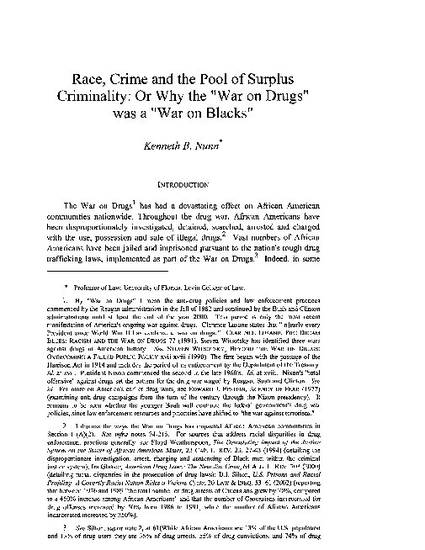
The War on Drugs has had a devastating effect on African American communities nationwide. The concept of the pool of surplus criminality may explain the drug war's focus on African Americans. Faced with a perceived drug problem, White Americans naturally identified African American people as the source of that threat and targeted them for police harassment and penal control. There are ways in which the drug war may be construed as a race war. The disproportionate impact on the African American community, evidence that policy makers anticipated the drug war would disproportionately harm the African American community, and the historic connection between drugs and racial stereotyping support this construction. The concept of the pool of surplus criminality explains why the drug war targeted African American communities and why, consequently, African Americans will always be treated unfairly by the nation's criminal laws.
